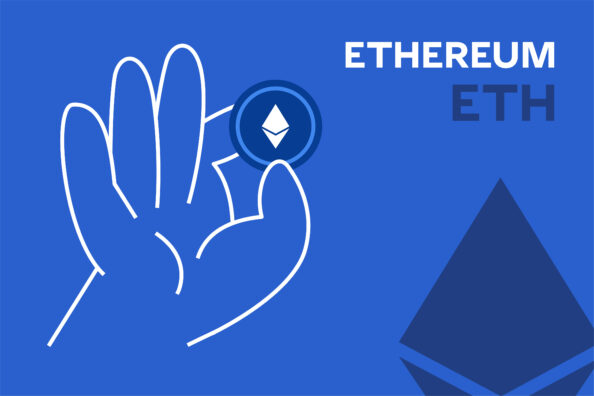
Smart contracts are the building blocks of Ethereum blockchain applications. With the power of Ethereum, developers can create secure and trustless applications that are accessible to anyone with an internet connection.
Smart contracts are transforming the way we transact and manage digital assets, allowing for the secure and efficient exchange of value on the Ethereum blockchain. With Ethereum smart contracts, developers can automate workflows, build decentralized applications, and create trustless digital relationships. In this guide, we’ll explore the fundamentals of Ethereum smart contracts, from setting up an Ethereum IDE to writing and deploying a smart contract.
Smart contracts are a revolutionary concept in the world of blockchain technology. They are designed to automate and streamline complex business processes, allowing users to interact with each other through secure, trustless agreements.
Smart contracts are solutions stored on the blockchain that can be used to facilitate and enforce contractual agreements. They are written in a programming language called Solidity and are executed by Ethereum Virtual Machine (EVM).
Smart contracts are self-executing when certain conditions are met. They are immutable, which means that no one can change them after they have been published. They can be used to store data, transfer value, or manage complex financial transactions.
Smart contracts have a wide range of applications. They can be used to create decentralized autonomous organizations (DAO), manage financial transactions, and create digital tokens. They can also be used to create digital identities, facilitate voting, and automate business processes.
Smart contracts are powerful tools for developers and are a rapidly evolving technology. They offer many benefits and have the potential to revolutionize the way businesses interact with each other. With the right knowledge, anyone can create and deploy smart contracts on the Ethereum network.
Smart contracts are revolutionizing the way we do business by replacing traditional contract systems and transforming the way agreements are made.
Smart contracts offer a more secure, efficient, and cost-effective way of making agreements. They are also immutable and cannot be changed or tampered with, making them extremely secure. Smart contracts also give both parties the assurance that their agreement will be enforced, eliminating the need for a third party to enforce the agreement.
Smart contracts also provide transparency and trust between parties. All parties involved can view the details of the contract, making it easier to track and verify the performance of the agreement. Additionally, smart contracts are highly auditable, meaning that the parties involved can easily review the details of the agreement and make sure that it is being enforced correctly.
Additionally, smart contracts are also much faster to execute than traditional contracts, as they are not subject to the same bureaucratic delays that can be caused by a manual process. They are also cheaper to use than traditional contracts. Since there is no need for manual processing or paperwork, the cost of executing a contract is much lower. Additionally, the cost of resolving disputes is usually much lower as well, since the code is already written and agreed upon.
Overall, smart contracts offer a wide range of benefits over traditional contract systems. They are faster, more secure, and cheaper to execute than traditional contracts, making them the perfect choice for businesses and individuals looking to streamline their contractual processes.

A smart contract is a self-executing digital agreement that contains the terms of a deal or transaction between two or more parties. It is similar to a traditional contract, but the code written in a smart contract is automated and executed by a computer, not a person.
Every smart contract can be boiled down to an if-then statement. If a certain condition is met, then a certain action will be taken. This is an extremely powerful tool, as it allows for the automated and trustless execution of agreements and transactions.
While a single smart contract is responsible for one action, multiple contracts can be bundled together to handle more advanced tasks. For example, a smart contract can be used to handle the transfer of funds between two parties, while another one can be used to manage the order of asset delivery. By combining several contracts, complex business logic can be created.
In decentralized crypto exchanges, for example, a smart contract is used to facilitate the trading of digital assets between buyers and sellers. This means that the exchange does not require a third party to hold funds or act as an intermediary between buyers and sellers. Instead, the smart contract acts as a centralized, automated system that records and executes the trades taking place.

Writing a smart contract requires knowledge of programming and blockchain technology. Developers must also understand the Ethereum Virtual Machine (EVM), which is a secure environment for executing and verifying smart contracts.
Today, Ethereum smart contracts are being used in various industries. From governments to healthcare, smart contracts are being utilized to streamline processes, reduce costs, and increase transparency.
Governments
Ethereum smart contracts can be used by governments to facilitate digital transactions and control access to resources. For example, governments can use smart contracts to securely manage public records, such as birth and death certificates, land titles, and property ownership. Smart contracts also allow governments to securely store and transfer funds, as well as to track the movement of goods and services.
Insurance
Insurance companies can benefit from the use of smart contracts to streamline the claims process. Smart contracts can be used to automatically verify claims and issue payments, reducing administrative costs and eliminating the need for manual verification. Additionally, smart contracts can be used to automate the payment of premiums, making it easier for insurance companies to manage their customer base.
Healthcare
Healthcare organizations can leverage smart contracts to improve the efficiency of their operations. Smart contracts can be used to securely store and transfer patient data, enabling healthcare providers to access real-time information about their patients. Smart contracts can also be used to automate the payment of claims and to track the movement of medical supplies and equipment.
ICOs

Ethereum smart contracts have become increasingly popular for Initial Coin Offerings (ICOs). Smart contracts can be used to securely store and transfer funds, as well as to facilitate the issuance and sale of digital tokens. Additionally, smart contracts can be used to automate the distribution of tokens to investors and to ensure that investors receive the tokens they have purchased.
Financial services
Financial services organizations can benefit from the use of smart contracts to streamline their operations. Smart contracts can be used to securely store and transfer funds, as well as to automate the payment of loans, mortgages, and other financial products. Smart contracts can also be used to facilitate the issuance and sale of financial products, such as stocks and bonds.
Digital identity
Smart contracts can be used to securely store and transfer digital identities, allowing organizations to easily verify the identity of their customers. Smart contracts can also be used to automate the verification of credentials and to ensure that users are who they claim to be.
Real estate
Smart contracts can be used to securely store and transfer real estate ownership, as well as to automate the payment of mortgage and rental payments. Smart contracts can also be used to verify the authenticity of legal documents, such as titles and deeds, and to ensure that all parties involved in a real estate transaction are in compliance with applicable laws and regulations.
Supply chain
Smart contracts can be used to securely store and transfer goods and services, as well as to track the movement of products throughout the supply chain. Smart contracts can also be used to automate the payment of suppliers and to ensure that goods and services are delivered on time.

1. Autonomy and savings
By relying on a digital agreement, developers no longer have to rely on third-party brokers to ensure their contracts are honored. This can result in significant cost savings, as well as greater autonomy for the developers involved.
2. Backup
By using digital agreements, developers can be sure that their contracts are never lost or corrupted. This makes the process of dispute resolution much easier and more efficient.
3. Safety
By relying on a distributed network of computers, smart contracts are far more secure than traditional paper contracts. This makes them perfect for situations in which sensitive information, such as financial details, needs to be shared.
4. Speed
Smart contracts can be executed much faster than traditional paper contracts. This makes them ideal for situations in which time is of the essence.
5. Accuracy
By relying on code, rather than humans, smart contracts are far more accurate than traditional paper contracts. This makes them perfect for businesses that need to ensure that all contracts are perfectly followed and executed.
Although smart contracts are a revolutionary technology that offers many advantages, they also come with certain limitations. It is important to understand these limitations and ensure that the contracts are written correctly and thoroughly tested before they are deployed.
1. Difficult to change
Once a contract is written and deployed, it is extremely difficult to change it without the agreement of all parties involved. This is because changes to the code would require all parties to agree, and any single party could veto the change. Therefore, it is important to ensure that the contract is written correctly and thoroughly tested before it is deployed.
2. Possibility of loopholes
Since the code of a smart contract is written by humans, there is always a chance that the code may contain subtle errors or loopholes that can be exploited. Therefore, it is important to thoroughly test the contract before it is deployed.
3. Third party
Smart contracts are deployed on a blockchain and require miners to validate the transactions and confirm the terms of the contract. Therefore, if the miners do not agree with the terms of the contract, the contract may not be executed as expected.
4. Vague terms
Since the contract is written in code, it is difficult to interpret the exact meaning of certain terms and phrases. This can lead to conflicts between the parties involved and make it difficult to enforce the contract.

Create your cryptocurrencies
Ethereum is perfect for developers interested in building decentralized applications. By using Ethereum, developers have access to a secure, transparent, and efficient platform. Ethereum allows developers to write applications in various programming languages, such as JavaScript and Solidity. This provides developers with access to a large, vibrant developer community.
Develop virtual organizations
DAOs are decentralized entities that operate based on a set of rules encoded in smart contracts. They allow for the creation of decentralized communities and organizations that can operate without the need for a central authority. Users can interact with the DAO through transactions on the Ethereum blockchain and can participate in decision-making through voting mechanisms built into the smart contract.
Build dApps
Ethereum is one of the most popular platforms for building dApps, and it has a large and active community of developers, allowing the development of secure and fault-tolerant decentralized apps that eliminate intermediaries and offer transparency.
Raise funds
Ethereum smart contracts can be used for fundraising by writing a smart contract with a deadline. If the fundraising goal is not achieved, all the donations will automatically be reimbursed to donors without disputes or commissions, creating trust in your project.
The essential part of creating smart contracts is understanding the Ethereum blockchain and the way it executes smart contracts. There are several parts of the execution environment
Ethereum Virtual Machine (EVM)
The EVM is a virtual machine that runs on the Ethereum network and is responsible for executing smart contracts. When a smart contract is submitted to the EVM, it is first compiled into bytecode, which is a low-level machine-readable code that the EVM can understand. The bytecode is then stored on the Ethereum blockchain and can be called by other contracts or transactions.
When a contract is called, the EVM retrieves the bytecode from the blockchain and runs it on a virtual machine. The EVM reads the bytecode instruction by instruction, executing each one and updating the state of the contract accordingly.
Gas
Gas is the internal pricing for running a contract or transaction on the Ethereum network, and is necessary to prevent spamming and denial of service attacks on the network. Each instruction in the bytecode of a contract requires a certain amount of gas, and the cost is subtracted from the sender’s account balance. If the sender does not have enough gas to cover the cost, the transaction will fail. The more complex the computation is, the more gas is used.
Solidity
Solidity is a programming language that is used to write smart contracts on the Ethereum blockchain. It is a statically-typed, contract-oriented language that is similar to JavaScript and is used to define the logic and rules of a smart contract.
When a developer writes a smart contract in Solidity, they use the language’s syntax and features to define the contract’s properties, functions, and events. The contract’s properties are its state variables, which are used to store data on the Ethereum blockchain. The contract’s functions are its methods, which can be called by other contracts or transactions and are used to update the contract’s state. Events are used to notify other contracts or external clients of changes in the contract’s state.
The development of smart contracts on the Ethereum blockchain takes a few steps:
Define the requirements
The first step is to clearly define the requirements of the contract. This includes determining the contract’s purpose, what data needs to be stored, and what functions need to be provided.
Create a wallet at MetaMask and set it up

You can install and create a wallet on your smartphone or in the Chrome browser. After downloading and enabling it, open it and choose “Create Wallet”, agree to the terms and conditions, create a password and save the backup phrase. When this is done, choose Main Ethereum Network. And after, choose one of the test networks, for example, Ropsten, Goerli or Rinkeby.
The next step here will be to add some dummy Ethers to your wallet, so you’ll be able to test your smart contract. To do so under the Test Faucet section choose “Deposit” and “Get Ether”. You can request Ethers from the faucet adding as much as you need to test the smart contract.
Write the contract using Remix Browser IDE
Remix Browser IDE is a browser-based IDE that allows you to write, compile, and deploy smart contracts. It also provides a debugger and a testing environment. As it offers a handful of features and a comprehensive developing environment, we consider it one of the best for writing smart contracts.
Create a .sol file
To start writing a smart contract you need to create a .sol extension file. Then use a sample smart contract code. For example, ERC20.sol is a standard template for ERC20 tokens. Choose the version of the compiler from remix to compile the Solidity Ethereum smart contract code.
To get started, we will create a new file in Remix. In the file, we will write our smart contract code. We will start with a simple contract that allows users to submit messages.
Compile smart contract
Once you have written your smart contract, you will need to compile it before it can be deployed on the Ethereum network. The process of compilation converts the code you have written into bytecode, which is a lower-level language that can be understood by the Ethereum Virtual Machine.
There are a few different ways to compile a smart contract, but we recommend using the online compiler Remix. Remix is a browser-based compiler that makes it easy to deploy and test your smart contract.
To use Remix, simply navigate to the Remix website and paste your smart contract code into the editor. Then click on the “Compile” button to compile your contract. Once your contract is compiled, you will be able to deploy it to the Ethereum network.

Ethereum smart contracts are immutable, meaning they cannot be changed once deployed to the blockchain. This is one of the key benefits of using a smart contract, as it ensures that the contract terms cannot be altered by either party. However, it also means that any errors in the contract code cannot be fixed after deployment. This is why it is so important to test your smart contract before you deploy it.
Testing a smart contract can be done in a few different ways. The most common method is to use a test blockchain, which is a copy of the Ethereum blockchain that is used for testing purposes. This allows you to deploy your smart contract to the test blockchain and interact with it as if it were on the real blockchain.
Another way to test a smart contract is to use a mocking library. This allows you to create mock versions of the Ethereum blockchain and its associated contracts. This is useful for testing how your smart contract will interact with other contracts on the blockchain.
To make your smart contract live, follow these steps:
1. Switch to the main Ethereum network at metamask
2. Add some real ethers
3. Deploy your smart contract using remix, as mentioned in the previous steps
4. When the smart contract is deployed successfully, visit http://www.etherscan.io and search for your smart contract address
5. Select your smart contract
6. Verify your smart contract here by clicking “verify the contract”
7. Copy your smart contract code and paste it into Etherscan. Select the same compiler version that you selected at remix to compile your code
8. Check “optimization” to Yes, if you had selected optimization at remix; otherwise, select No
9. Click Verify
10. It will take a few minutes and your smart contract will be live if no issue occurs
11. You can now run your smart contract methods at Etherscan

To implement Ethereum smart contracts, you will need the following tools and technologies:
Ethereum has quickly become a go-to platform for tech-savvy companies and developers. A huge number of decentralized applications are built on the Ethereum blockchain, with smart contracts being a key feature.
Ethereum-based apps offer an open, transparent, and accountable environment and can completely eliminate the need for intermediaries. These dApps are used in a variety of industries, from finance and crowdfunding to insurance, real estate, and healthcare.
The successful implementation of numerous projects proves that Ethereum smart contracts are not a temporary innovation, but they will continue to evolve and become the new norm in most areas of our life.
If you are looking to deploy a smart contract for your business, contact our experienced developers who will be able to advise you on the best course of action and develop a decentralized application that perfectly suits your business needs.